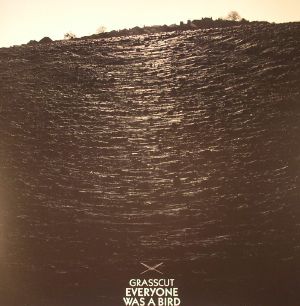Post-rock has stagnated a bit. I blame bands’ pandering to expectations and genre definitions. Remember Disco Inferno and Dirty Three? They didn’t really look at what the rest of the scene was up to, and the genre was all the better for it. Today, the popular canon of post-rock leans a bit much on the Big Three: Sigur Ros, Godspeed, and (perhaps) Mogwai. All fine bands, sure, but it’s hard to ignore the irony that, in a genre that prides itself on working outside the self-imposed limitations of rock, bands of late (post-post-rock?) have turned the genre into an exercise in lengthy crescendos and predictable, sentimental washes of violins and bowed guitars.
This month, Grasscut, the Brighton duo comprised of Andrew Phillips and Marcus O’Dair, have returned with their third record Everyone Was A Bird. This time they’ve brought along nearly a dozen additional musicians and accompanied by fan-submitted spoken word snippets. The press call Grasscut post-rock. I’m not so sure, and that’s why they’re good.
These songs, despite the number of musicians featured, are relatively brief 4 or 5 minute bursts of melody and refreshingly earthbound lyrical content. There’s no time for cosmic loneliness, elfish wailing or glib skewerings of capitalism here, just a reasonable yearning for home, be that a place (opener ‘Islander’) or a time (the ticking ‘Halflife’). When Phillips’ voice occasionally sinks beneath the tide of the instrumentation, it’s easy to see it as a musical reflection of these themes rather than a deficiency in the immaculate mixing and production.
The record also deals with lightness in both senses of the word. For one you’ve got light and dark as a common thread, first established by ‘Radar’ (someone’s read their George Oppen) but expanded upon throughout, while birds and flight, as you could probably guess, crop up over and over again, motifs that while lifted by the delicate strings and airy acoustic guitar remain tethered by a net of skittering drum machines and twinkling synths.
The songs of course ebb and flow in and out of each other, and in what’s probably the record’s only concession to genre excess (Robert MacFarlane’s labyrinthine liner notes notwithstanding), build to the final track, ‘Red Kite,’ a nice loud rush of martial snares and stuttering strings. It stands as one of the few definitively emotive moments on the record, contrasting nicely to ‘Islander”s floaty search for identity, and brings a satisfying resolution to the record’s final moments.
This is that rare slab of post-rock that uses the genre’s textures and general ethos of exploration to create new sounds instead of rehashing old ones. Though Phillips’ lyrics are often chilly, abounding with images of freezing water and fallow fields, there’s a genuine warmth here remarkably absent of pretense or the weepy e-bow heroics that post-rock has grown so fond of. The final cries of "still here, after" at the end of ‘Red Kite’ tie up the record’s longing nicely and speak to the permanence of ‘Home’. Let’s hope they also speak to the longevity of Grasscut, because by doing more with less, Everyone Was A Bird soars.
<div class="fb-comments" data-href="http://thequietus.com/articles/17928-grasscut-everyone-was-a-bird-review” data-width="550">


